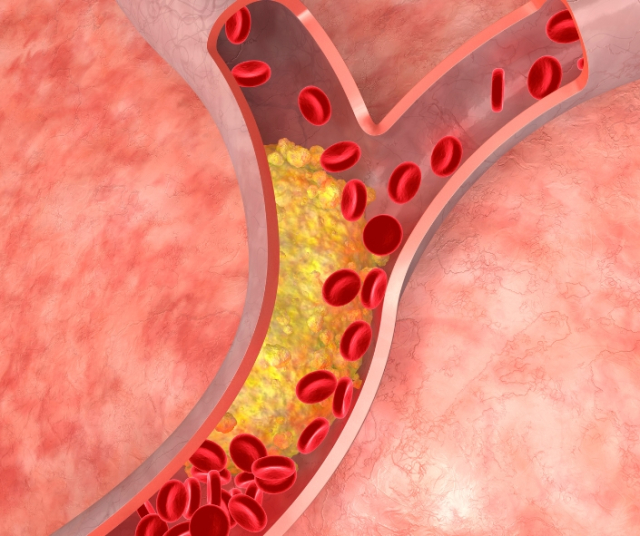Cholesterol is a term we've all heard, but do we really know what it is and why it's important? Explore in depth what cholesterol is, why it occurs in our body and what is the best treatment to keep it under control. Cholesterol can be both our ally and our enemy, depending on the levels at which it is found. Read on to find out everything you need to know about cholesterol and how to take care of your health .
What is cholesterol?
Cholesterol is a lipid substance found naturally in our body. It is essential for the proper functioning of our cells , since it plays a crucial role in the production of hormones, the synthesis of vitamin D and the formation of cell membranes. However, when cholesterol levels get out of balance, it can cause significant health problems.
types of cholesterol
Cholesterol is divided into two main types:
LDL cholesterol (low density lipoproteins)
LDL cholesterol is commonly known as "bad cholesterol." This is because when LDL levels are high, there is an increased risk of plaque buildup in the arteries , which can lead to heart disease and stroke . LDL cholesterol transports cholesterol from the liver to the tissues of the body, where it is used for various functions. However, when there is excess LDL cholesterol in the bloodstream, it can be deposited on the walls of the arteries and form plaques.
HDL (high-density lipoprotein) cholesterol
HDL cholesterol is known as "good cholesterol" due to its protective role for cardiovascular health. HDL collects excess cholesterol from the tissues and transports it back to the liver, where it is removed from the body. Having high HDL cholesterol levels is considered beneficial because it helps prevent cholesterol buildup in the arteries. A high level of HDL cholesterol is associated with a lower risk of heart disease.
It is important to maintain a proper balance between LDL and HDL cholesterol in the body. If LDL cholesterol levels are too high or HDL cholesterol levels are too low, there is an increased risk of cardiovascular disease.
triglycerides
Triglycerides are another type of fat present in the bloodstream. Although they are not specifically classified as cholesterol, they are closely related to the lipid profile . Triglycerides are stored in fat cells as a reserve of energy and are also obtained through diet. Elevated triglyceride levels are associated with an increased risk of heart disease , especially when combined with high LDL cholesterol levels and low HDL cholesterol levels.
Keep in mind that a complete lipid profile, which includes both LDL and HDL cholesterol levels as well as triglyceride levels, provides a more complete picture of a person's cardiovascular health.
Causes of increased cholesterol
The increase in cholesterol can be influenced by several factors, both genetic and related to lifestyle. Some of the more common causes include:
- Unhealthy diet: A diet high in saturated fat and cholesterol, found in foods such as red meat, full-fat dairy, fried foods, and baked goods, can raise blood cholesterol levels.
- Overweight and obesity: Excess body weight, especially the accumulation of abdominal fat, is associated with increased cholesterol levels.
- Lack of physical activity: a sedentary lifestyle and lack of regular exercise can contribute to an increase in LDL cholesterol and a decrease in HDL cholesterol.
- Genetic factors: There are certain hereditary conditions that can increase cholesterol levels, such as familial hypercholesterolemia, in which the body cannot eliminate LDL cholesterol efficiently.
cholesterol treatment
High cholesterol treatment is based on a combination of lifestyle changes and, in some cases, medications prescribed by a health professional. Some effective treatment options include:
Changes in diet: eating a balanced and healthy diet is essential to control cholesterol levels. It is recommended to reduce the consumption of saturated fat and cholesterol, and include more fruits, vegetables, whole grains and foods rich in fiber. In addition, it is important to limit the consumption of processed foods and added sugars.
Regular physical activity: Exercising regularly, at least 150 minutes a week, can help increase HDL cholesterol levels and improve overall cardiovascular health. It is recommended to combine cardiovascular exercises, such as walking, running or swimming, with resistance exercises, such as weight lifting or yoga .
Weight control: Maintaining a healthy weight is crucial to controlling cholesterol . If necessary, you can work with a health professional to set realistic weight loss goals and develop a personalized plan.
Prescription medications: In some cases, when lifestyle changes are not enough, your doctor may prescribe medications to lower your cholesterol levels. These drugs , like statins, help lower LDL cholesterol and reduce the risk of heart disease.
Prevention and ongoing care
Cholesterol care is not limited to short-term treatment, but is an ongoing approach to maintaining cardiovascular health . Some preventive measures and healthy habits to consider include:
1. Get regular medical checkups: It is important to get regular cholesterol tests to monitor levels and catch any changes early.
2. Do not smoke: smoking not only increases LDL cholesterol levels, but also damages the walls of blood vessels, increasing the risk of cardiovascular disease.
3. Limit alcohol consumption: Excessive alcohol consumption can increase levels of triglycerides, a type of fat in the blood, and raise blood pressure. It is recommended to consume alcohol in moderation or to abstain completely.
4. Reduce stress: Chronic stress can negatively affect cholesterol levels. Looking for stress management techniques, such as meditation, yoga, or practicing relaxing hobbies, can be beneficial for your overall health.
Taking care of our cholesterol levels is an integral part of maintaining good health in the long term. By taking steps to properly control and balance the lipid profile, we can reduce the risk of cardiovascular disease and promote a healthy life. Remember that cardiovascular health care is an ongoing commitment, and maintaining a healthy lifestyle is the key to protecting our heart and general well-being.
